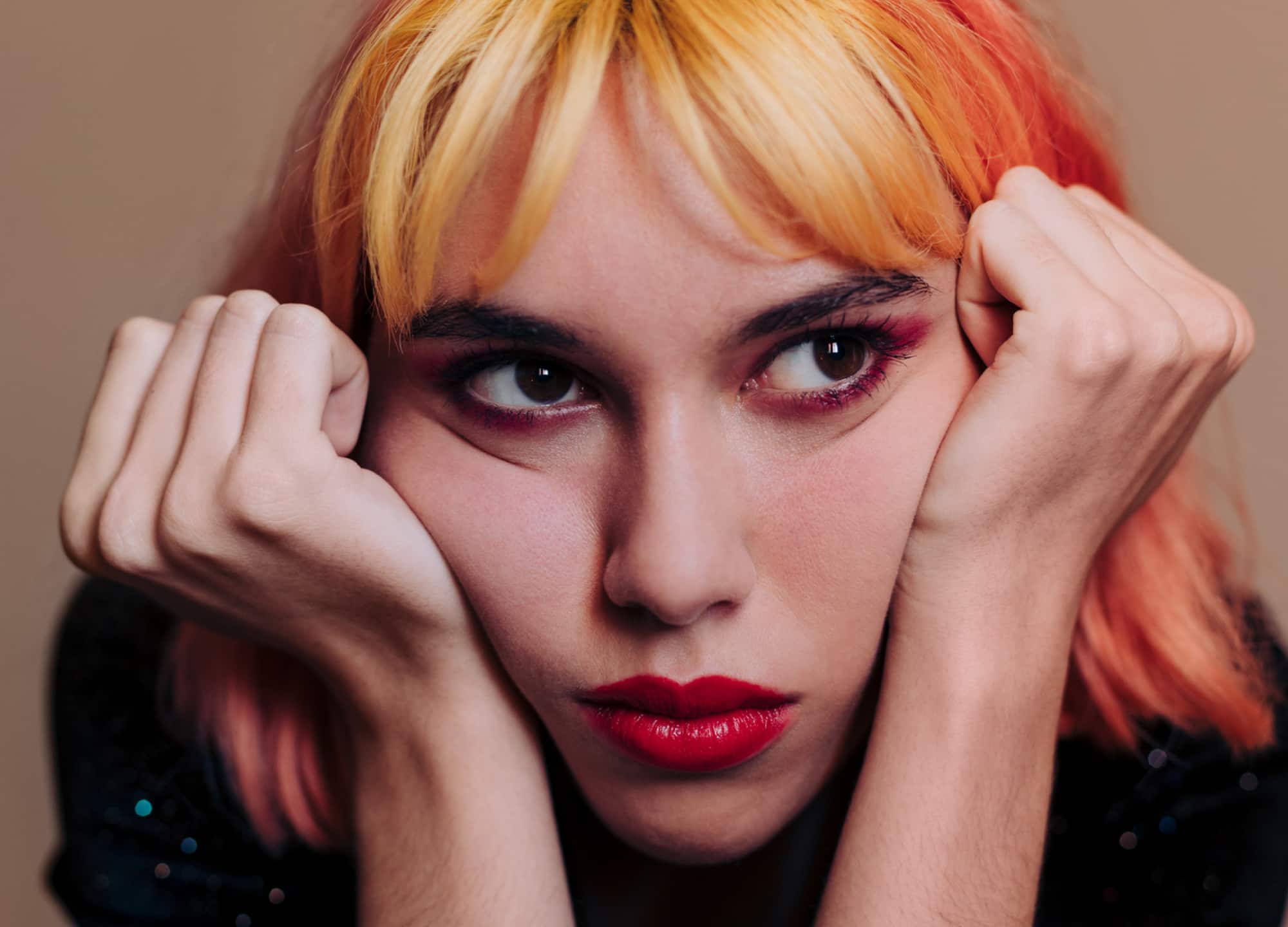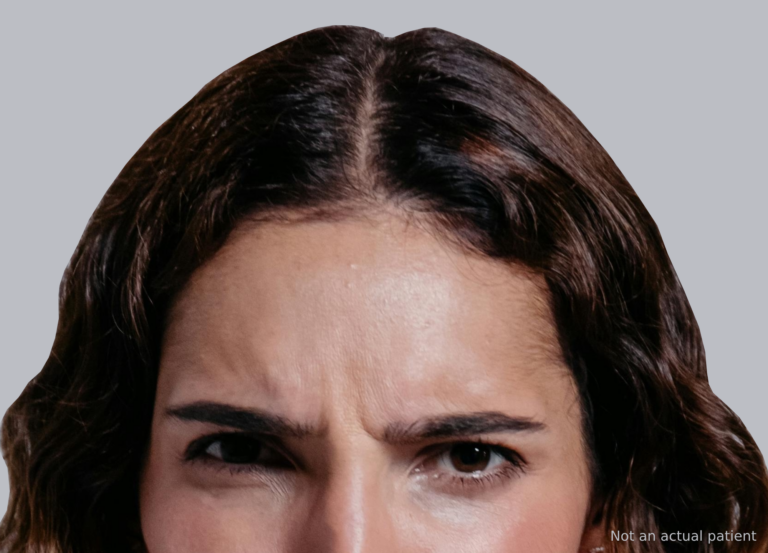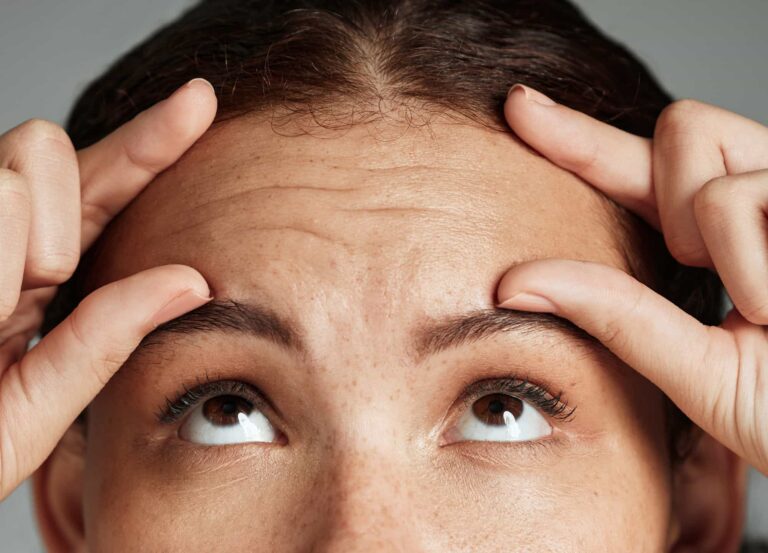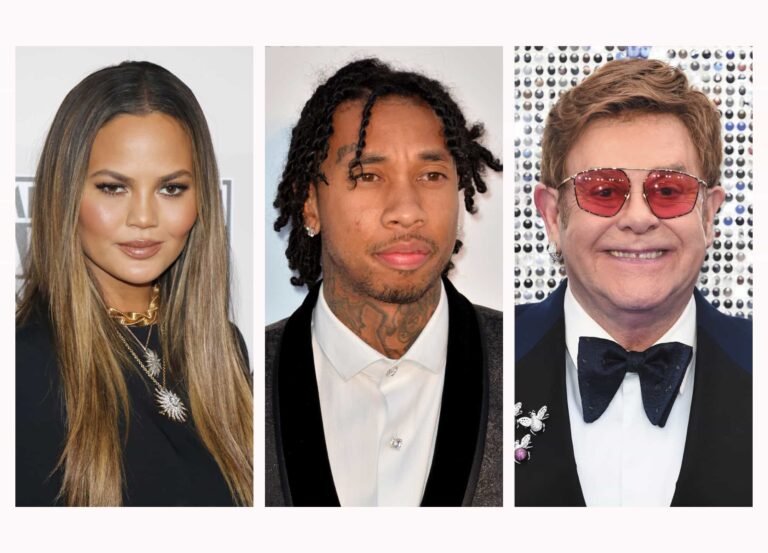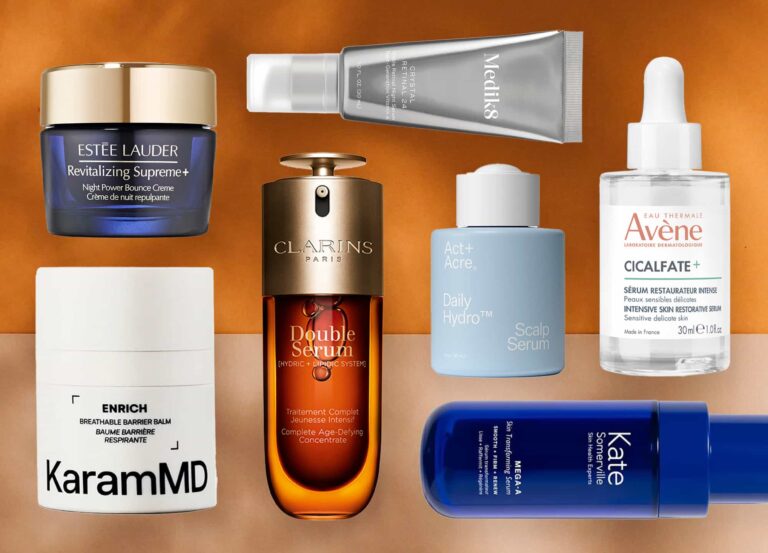Featured Experts
Dr. Shereene Idriss, a board-certified dermatologist in New York City
Dr. Brooke Jeffy, a board-certified dermatologist in Scottsdale, Arizona, and the founder of teen/tween skin-care line BTWN
Dr. Sarmela Sunder, a board-certified facial plastic surgeon in Beverly Hills, California
Dr. Anthony Youn, a board-certified plastic surgeon in Troy, Michigan
Eight years ago, I interviewed Kylie Jenner at a media event where she was promoting her collaboration with a mass-market nail polish brand. And though I knew she was 18 years old, I could not reconcile that fact with her appearance. In my opinion, she looked more mature than I did (27 at the time) due to her hair and makeup styling and, of course, lip filler. In her generational cohort though, Kylie is not alone: she’s just one of the most visible individuals used to support the internet’s theory that Gen Z looks older than its age.
@aesthetics_by_rafaela Kylie is beautiful no matter what. This is just something we see a lot so i thought ill make a video. #kyliejennerinterview #kardashianshulu #kardashianssisters #jennersisters #tirana🇦🇱 #vajzatshqiptare🇦🇱 #fyp #albaniantiktokers🌻 #shqiptaretneperbote🇦🇱🌍 ♬ Ride It – Aziza Qobilova
In one of the most viral TikToks on the subject, @jordan_the_stallion8, an influencer with a full, graying beard, shares that he’s often mistaken for much older but is actually a member of Gen Z. “Zendaya is older than me,” says @jordan_the_stallion8. “I am 26.” “The way I screamed ‘NO’ when he said ‘I’m Gen Z,’” says one commenter. While you’ll find many hypotheses, the true reasons behind Gen Z’s more mature appearance is multifactorial. From the state of the world to social media and everything in between, experts break down why those born between 1997 and 2012 look as old—if not older—than the millennials who came before them.
@jordan_the_stallion8 #stitch with @staying up podcast #fypシ ♬ original sound – Jordan_The_Stallion8
Stress
This is @jordan_the_stallion8’s rationale behind his older look, and there are plenty of individuals who agree. “Gen Z has carried the weight of the world on its shoulders—it’s a generation that has always been a little bit more on the angrier side,” says Dr. Idriss. And while you’d be hard pressed to find members of any generation who’d say they had it easy, Gen Z has had it particularly rough. Sure, they can’t remember the events of 9/11, but they have been subjected to the fallout from it, including never-ending war and fear of terrorism. In the United States, school shootings are practically commonplace, due to their frequency. And of course, there was COVID-19. “This generation has gone through a once-in-a lifetime pandemic when it was younger versus older,” says Dr. Youn. “This may not have given Gen Zers the tools, due to them being at a young age, to deal with it effectively.”
In fact, 91% of more than 3,400 Gen Z adults polled in 2018 said they had experienced some kind of physical or emotional symptom of stress. Psychological stress plays a significant role in skin aging: skin mast cells, which support the immune system, are activated by stress and are shown to produce stress hormones, like cortisol, and inflammatory factors. Cortisol inhibits the production of collagen, key to healthy and resilient skin, while inflammation triggers the formation of damaging free radicals. Mast cells are also associated with skin conditions like acne, eczema, psoriasis, and more. “One only needs to see the appearance of U.S. presidents prior to going into office and afterward to know that stress can be prematurely aging,” quips Dr. Youn.
Tobacco use
When life gets stressful, it’s easy to turn to unhealthy coping mechanisms; Gen Z’s coping mechanism of choice is vaping. This came as a big surprise to millennials—the Truth Initiative hit our generation hard. When it comes to Gen Z, they use tobacco in the form of vaping. According to data culled from the CDC by Forbes, Gen Z is the largest subgroup of adult e-cigarette users, at 11%; 2.13 million middle and high school students in the United States reported using e-cigarettes in 2023. “Even though smoking was prevalent in my generation, we didn’t start quite as young,” says Dr. Sunder, a young member of Gen X. “Vaping, nicotine exposure, and actual smoke from smoking itself definitely impacts skin health in a way that, unlike sun damage and other things, cannot be reversed, no matter how much skin care you use.”
Though the CDC itself states that e-cigarette use is not as harmful as smoking cigarettes, it is still not safe. The majority of data out there doesn’t even account for one of the most popular substances to vape, marijuana; some studies show that it can be safer to vape THC than smoke it, but again, that doesn’t make it healthy. “Recent studies have shown that vaping, whether with THC or non-THC, has detrimental effects on wound healing very similar to those from cigarette smoking,” says Dr. Youn.
Advanced knowledge of makeup and skin care
“[We’re seeing an] unprecedented level of makeup use,” says Dr. Sunder. “[Gen Z] is using both more makeup and heavier makeup—and it’s generally understood that the more makeup you wear, you tend to look older, more mature.” Keeping up With the Kardashians aired in 2007, which happens to coincide with the rise in popularity of the “full beat” beauty look that’s associated with the famous sisters. Contouring, a technique once reserved for red carpets and movies, became an everyday technique. In 2007, the oldest Gen Zs were 10 years old, around the age that many kids start to get interested in beauty, and they witnessed a normalization of heavy-handed makeup that previous generations never had.
The peak in makeup maximalism, around 2017, nicely coincided with people doing the most with their skin—the 10+-step K-beauty skin-care routine. Watching older family members apply products has a formative effect on many, and if you’re seeing them apply a lot, that’ll stick with you. This, plus the advent of social media (more on this below), has resulted in some intense skin-care routines. “I have seen many comments on social media talking about how millennials and Gen X are just jealous of the complicated early onset skin-care regimens of Gen Z and Gen Alpha,” says Dr. Jeffy. “But they are actually harming their skin and altering their appearance, often in ultimately negative ways.”
And while it’s awesome that Gen Z has gotten into skin care earlier than older generations that spent too much time unprotected in tanning beds and the sun, “they went wrong and strong at a young age,” says Dr. Idriss. “You can cause underlying inflammatory responses in your skin that, over time, can lead to a breakdown in your own tissue and cause a more aged appearance.” Excess use of so many actives at a young age is not only unnecessary for most but can potentially be harmful for many skin types, especially skin of color, adds Dr. Sunder. “[A young teenager’s routine] should be limited to preventive mild treatments, such as using a good cleanser, sunscreen, and moisturizer,” says Dr. Youn.
Too many treatments, too soon
Previous generations were slower to adapt to the world of plastic surgery and medical aesthetics, just because the information wasn’t out there. “For my generation, Generation X, we had websites with before and after photos and the Yellow Pages,” says Dr. Youn. “Millennials had blogs and Facebook. With Instagram, TikTok, Snapchat, and others, there is an abundance of images and information for the younger generation to learn and research prior to undergoing any cosmetic procedures.” Forget the in-office brochures—a Gen Z patient has already viewed the intricate details of a surgery themselves. “You can watch pretty much any procedure online,” says Dr. Jeffy. “It’s great to be informed, but I think it downplays the risk because procedures just seem so accessible.”
“I see many Gen Z members who have already had filler to their faces and lips as well as Botox, and it evokes this aesthetic of having work done, which I think our brains immediately associate with age,” says Dr. Jeffy. “Many tend to go overboard, especially with filler, which over time really can change the shape of the face—and when started in the 20s and onward, it is easy to acquire an overfilled and distorted, more aged look.” This creates a mask-like, uncanny-valley appearance. Poorly done, excessive filler can also create a facial imbalance that can be imperceptibly “off” or dramatically inharmonious. “When you think of an aging face, it has to be a cohesive thing,” says Dr. Idriss.
This applies to other minimally invasive anti-aging procedures, like laser skin resurfacing and radiofrequency microneedling. While these are great tools to have in one’s anti-aging arsenal, there are still potential ramifications of trying them too soon. “If they did too many tightening treatments, they’re often more inflamed than you would expect at 22,” says Dr. Idriss. “If they’ve done too many CO2 treatments, they can look waxy by 27.” There’s also the fact that advanced energy-based treatments are extremely technique-sensitive and could cause lasting damage to one’s facial tissues if performed by an unskilled provider.
But not all Zoomers are into injectables. In fact, some are skipping straight ahead to surgery. “When I started my practice about 15 years ago, my typical facelift patient was in their 60s to 70s,” says Dr. Sunder. “Now my typical facelift patient is in their late 30s and 40s.” She’ll have patients come in for brow lifts in their late 20s, not because they’re seeing droopiness but because they would prefer a different brow shape or more open-looking eyes. “They’re much more likely to pull the trigger on doing it surgically than trying to see if Botox will get them the same results,” adds Dr. Sunder.
Social media has played a big role here too. “The pendulum has swung now in the opposite direction,” says Dr. Idriss of public opinion. “Filler is the devil, minimally invasive is sh-t, go get a facelift. There is no point in trying to accelerate a certain stage of life!” The popularity of (and outcome of most) buccal fat removal procedures exhibits this well. Removing that excess facial fat to reveal more of your cheekbones’ contour may make you look more refined when you’re younger, but the loss of that fat will likely make you look more severe in your 30s and 40s. “I feel like some patients have overstepped their own boundaries, and now they’re paying the price,” says Dr. Idriss. “The point of ‘minimally invasive’ is not to try to be something you’re not or to achieve an instant result—it’s to try to hold on to your essence in a very subtle way and achieve a long-term gain.”
Fear of aging and body dysmorphia
We all want to look and feel like our best self, but how Gen Z is viewing aging not only is alarming but provides an unrealistic perspective on getting older. In one post on Reddit, a user says, “In just the past few days, I have seen multiple Gen Zs on various platforms express a desire to [die by suicide] in their 30s or when they reach 40 because they cannot handle the fact that they will age, ‘become unattractive,’ ‘become hags,’ etc. Some even expressed not bothering with healthy eating habits, saving money, or planning on having careers because they feel so strongly about this.”
Plenty of posts in beauty subreddits are from young users asking for help with fixing their skin—and the only noticeable thing about their skin is visible pores. “The number of conversations I have to have with people about pores is mind-boggling,” confirms Dr. Sunder. “We all have pores—you’re just not seeing them on the edited videos that everyone is posting—and they’re completely normal.
After years spent staring at ourselves on our devices for the purposes of taking a selfie, to attend school remotely, or to participate virtually in meetings, we (and especially Gen Z) can end up obsessing over imperfections that may not actually be there. This makes seeking treatment from an ethical provider all the more important. “When a patient has body dysmorphia, they’re describing themselves in a way that’s not realistic at all,” explains Dr. Idriss. “With those patients, I usually say, “You look much better than how you see yourself. I know that’s easier said than heard, or understood, but you have to understand—I gain nothing from telling you this.’”
From there, she works slowly and closely with the patient, to gain their trust over time, helping them to seek psychiatric treatment. Skittish patients or those who hate to be told no are bound to fall into the clutches of a provider who may not have a strong code of ethics. The likely result? A patient pursuing limitless treatments, hoping to fix a perceived flaw that can be addressed only with mental healthcare, who ultimately has their provider make them look older and older.
Smartphone addiction
A study shows that Gen Z is by far the most active age group when it comes to daily screen time, spending a whopping nine hours in front of a screen, predominantly their cell phone. Though further studies are needed, there is evidence that cell phone addiction shares features with substance abuse; depression, anxiety, musculoskeletal problems, and poor sleep are all common effects of both. They’re also quite aging. “There’s a belief that the blue light emanating from the devices can be potentially prematurely aging to the skin,” says Dr. Youn, adding that all the time spent in front of these glowing screens can affect the circadian rhythm, causing sleep disturbances that can translate into an older look. (This isn’t surprising—a study shows that more than 75% of young adults bring their phones to bed.)
A note on Gen Alpha
If you know any members of Gen Alpha (they’re 12 and under), you know that they make Gen Z look like skin-care newbies. These kids are clamoring for bottles of Drunk Elephant and Glow Recipe the way millennials coveted Bath & Body Works body sprays and Lip Smackers. Considering that Gen Alpha is susceptible to all the factors above—likely even more so—we can expect that this generation will look older before their time too.
“I am very nervous about Gen Alpha,” says Dr. Jeffy. Tweens and teens face the most societal pressure to fit in and to thrive socially with their peers—and also parasocially, in their relationships with influencers and celebrities. This makes them especially vulnerable to misinformation and aggressive marketing. “They’re exposed to brands and products that have no business being in front of them, and their developing brains cannot understand the consequences,” she says.
Because tween skin is more sensitive, actives designed to target more mature skin concerns will irritate, inflame, and damage the moisture barrier, making skin even more susceptible to the hazards of UV light. “It is possible that early use of potent actives may actually contribute to more cosmetic procedures down the line, in attempts to address damage incurred,” Dr. Jeffy warns. Save for young patients who are treating acne with retinoids or alpha hydroxy or beta hydroxy acids (AHAs/BHAs), it’s all risk and no reward.
There’s clearly a confluence of factors making Gen Zers look older than their predecessors—now it’s up to them to pull back the reins and, hopefully, help Gen Alpha members treat themselves with grace as they mature. “Nobody thinks of their face as an evolution—they’re thinking, ‘How can I fix it now?’” says Dr. Idriss. “Your face, your skin, and your features are evolving, so you have to think, ‘How am I going to best serve my face so it can evolve in the best way possible?’”







